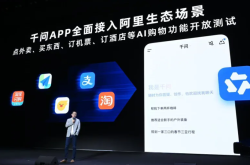Successive departures of multinational auto CEOs mark the downfall of business legends at the hands of tech pioneers
![]() 12/04 2024
12/04 2024
![]() 487
487
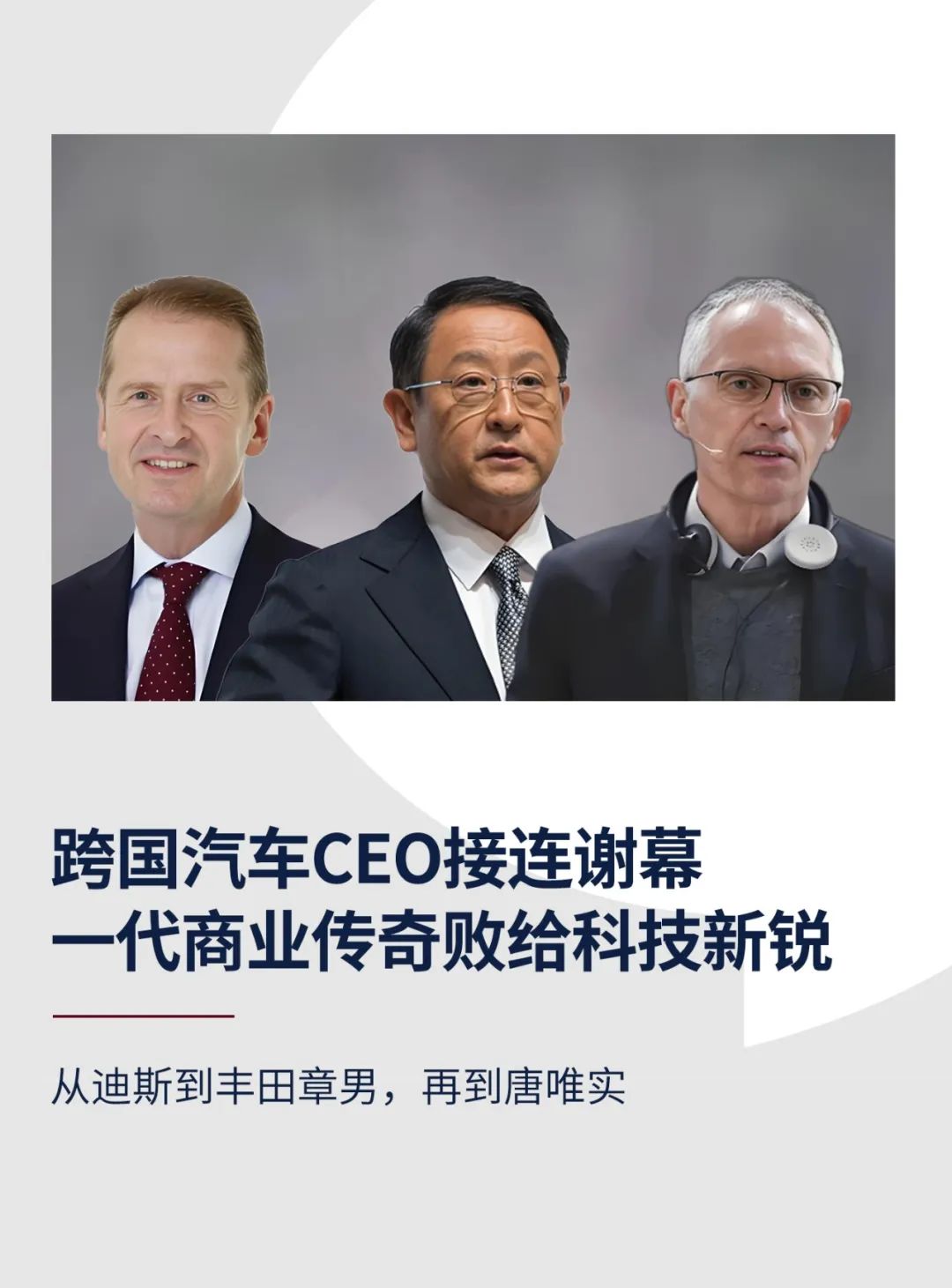
Author | Yang Lu
Editor | Li Guozheng
Produced by | Bangning Studio (gbngzs)
On December 2, Carlos Tavares, CEO of Stellantis Group, resigned. The 'cost killer' who once saved PSA from distress and facilitated the birth of Stellantis has now bid farewell.
Signs of his resignation emerged three months ago, as Stellantis' sales and market share declined in the North American market this year, leading to a significant drop in its main source of profit, prompting the board to consider replacing the CEO.
Tavares' many governance strategies once yielded miraculous results, but now, amidst the industry's centennial transformation, his mindset and experience have become constraints for Stellantis, ultimately forcing him to leave with regret.
Tavares is 66 years old. Among the generation of multinational auto CEOs, he is not the first nor the last to face such an ignominious departure. A somber exit seems to be the fate of this generation of multinational auto CEOs.
In 2022, Herbert Diess, former CEO of Volkswagen Group, was preparing for vacation when he received news of his unanimous dismissal by the supervisory board. The main reason was that, in the face of industry transformation, Diess's advocated strategic direction and cost-cutting measures provoked widespread internal outrage, ultimately leading to his defeat in the confrontation with labor unions.
In early 2023, Akio Toyoda announced his resignation as President of Toyota (equivalent to CEO) in April of that year. At the press conference, there was hardly any mention of Toyota's specific development strategies and financial goals. He said, 'I am an old-generation automaker with my own limitations.'
These leaders once dominated the automotive world. However, times are changing drastically, and it is difficult for giants to turn around. As automobiles transition from the traditional fuel era to the electric era and then to the intelligent era, and as Chinese brands seize over half of the domestic market and a significant global market share, the once proud advantages of these multinational automakers have been severely impacted, leaving them fraught with crises and, in some cases, disintegration.
In the new automotive era, leaders who once thrived on being 'cost killers' and business operations are now powerless in the face of the tide of new technology and marketing.
A generation of business legends has come to an end, defeated by tech pioneers.

Individuals and the Times
Tavares' successor has not yet been determined and is expected to be announced in the first half of 2025. Before the new CEO takes office, Stellantis Group will form a temporary executive committee chaired by John Elkann, Chairman of the Group's Board of Directors.
Previously, both Volkswagen and Toyota have replaced their CEOs, with successors seemingly filling the gaps left by their predecessors.
Diess was known as a 'radical reformer.' With a forward-looking vision and a sense of crisis, the famous photo of him with Elon Musk revealed Diess's active and urgent push for electrification.
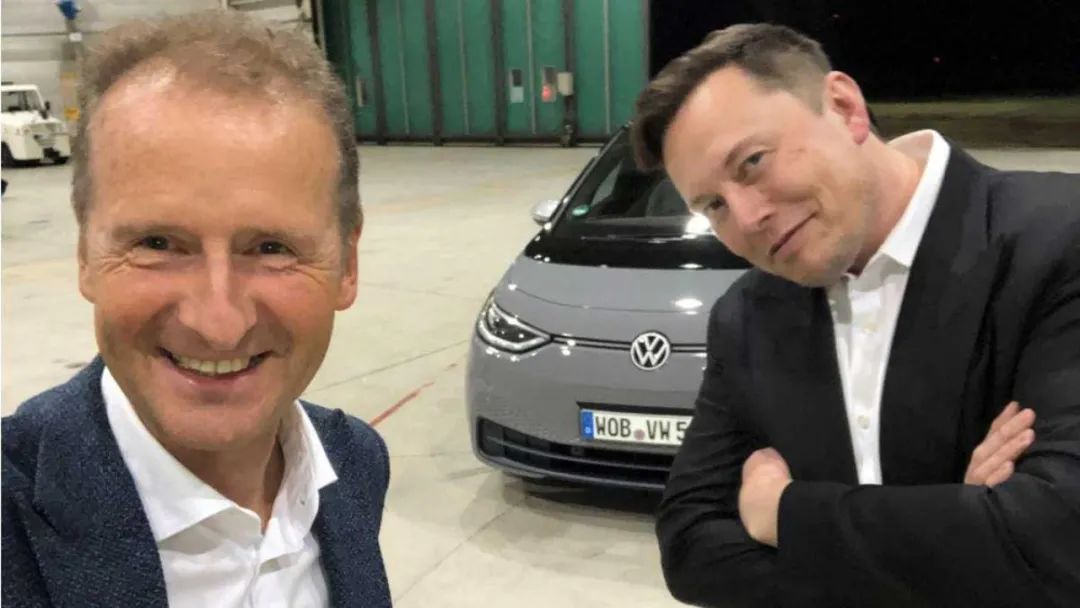
Diess's successor, Oliver Blume, is viewed as calm, steady, and wise. As a true 'insider' of Volkswagen, he has worked at the company for 30 years since starting as an intern at Audi in 1994. Unlike Diess's radical approach, Blume may be more adept at mediation between the company and labor unions.
Diess praised Blume's cost-cutting measures. He once said that the tough cost-cutting measures announced by Volkswagen were inevitable, and that the company must now focus on improving productivity and efficiency, issues that should have been addressed long ago.
Three years ago, when Diess was still in office, he proposed Volkswagen Group's comprehensive electrification strategy, the elimination of 30,000 jobs from the Volkswagen brand, and the company's intention to develop its software in-house. However, these measures faced numerous obstacles during implementation. He recalled, 'It may have been premature at the time, but I had done everything I could.'
Even now, resistance to Blume's reforms persists. On December 2, workers began warning of strikes, halting work for a few hours each day, as Volkswagen still demanded a 10% pay cut for employees. The duration of the strike will depend on the progress of negotiations.
Volkswagen has reached a critical juncture, and layoffs and pay cuts are inevitable measures, but they have met with strong protests from labor unions. Even if Blume is adept at resolving conflicts, he cannot avoid disputes over the interests of both sides.
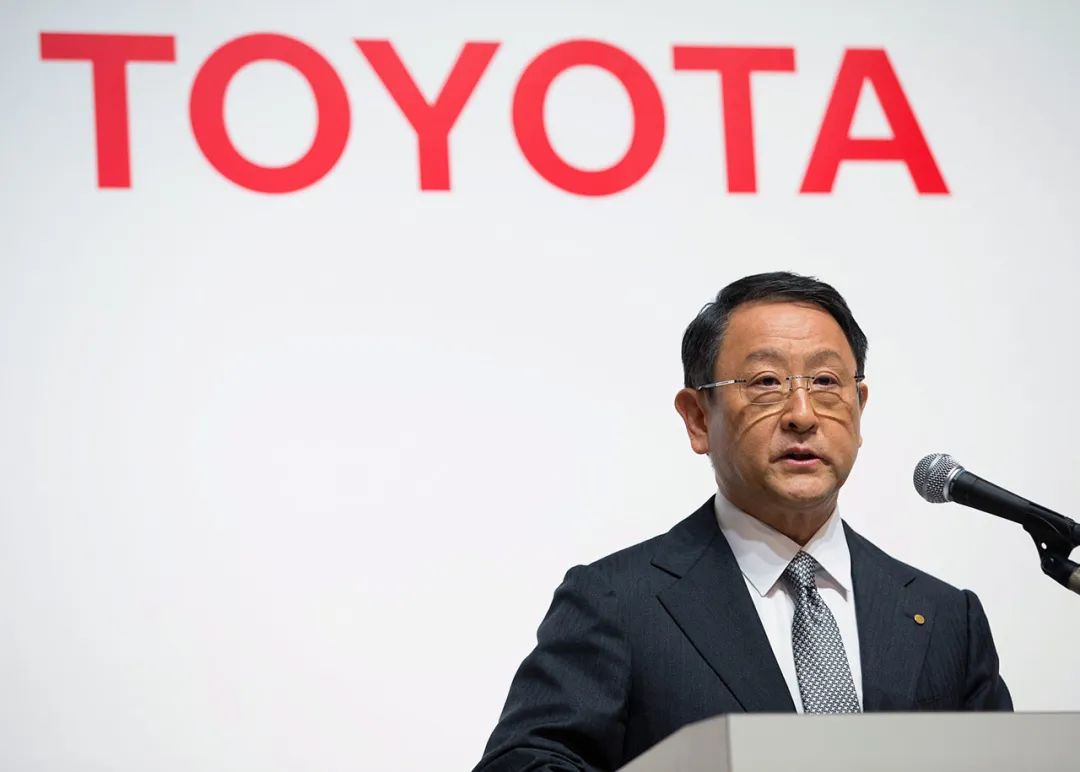
After Toyoda's resignation, Koji Sato took over as President of Toyota. While Toyoda comes from a liberal arts background, Sato is a technologist who can communicate directly with engineers on-site. Sato, aged 54, also has advantages in terms of age and energy. An executive who knows him said that Sato has never shown any signs of distress and always maintains a dynamic personality and hands-on attitude.
Under Sato's leadership, Toyota's revenue and profit both increased in fiscal year 2023, but net profit decreased by 26.4% year-on-year to 1.9 trillion yen (about $12.5 billion) in the first half of fiscal year 2024. This is the first time in two years that Toyota has reported a profit decline in a half-year financial report.
Another Japanese automaker is even more concerning. Nissan CEO Makoto Uchida recently announced global layoffs of 9,000 employees and a 50% pay cut for him and other senior executives to save costs. There are rumors that Nissan may be acquired by Honda, and CFO Stephen Ma will step down. In response to these rumors, Nissan China told Bangning Studio, 'We do not comment on speculative reports.'
Although these multinational auto CEOs have different management styles and traits, they face essentially the same transformation challenges.

'Big Company Disease'
Tavares' departure highlights the complexity of leading a global automaker in a challenging industry environment.
Multinational automakers like Volkswagen, Toyota, Stellantis, and Nissan have been renowned for years, making reform and transformation difficult.
The first major obstacle is revolutionizing the gasoline vehicle industry, which is akin to revolutionizing oneself. For years, gasoline vehicles have brought substantial profits to these automakers, so when new energy vehicles began to spread globally, they were still entrenched in their comfort zones.
However, sales and financial data do not prioritize sentiment but speak only of reality.
The latest financial report shows that Stellantis Group's net revenue in the third quarter of this year was 33 billion euros (about $36 billion), a year-on-year decrease of 27%. Vehicle shipments decreased by 20%, with a reduction of 279,000 units compared to last year, especially in the North American market, where shipments declined by 36%, reducing by 170,000 units.
In addition to declining sales in the North American market, Stellantis also plans to reduce production in Europe due to concerns that producing too many gasoline vehicles will result in EU fines for exceeding emission standards.
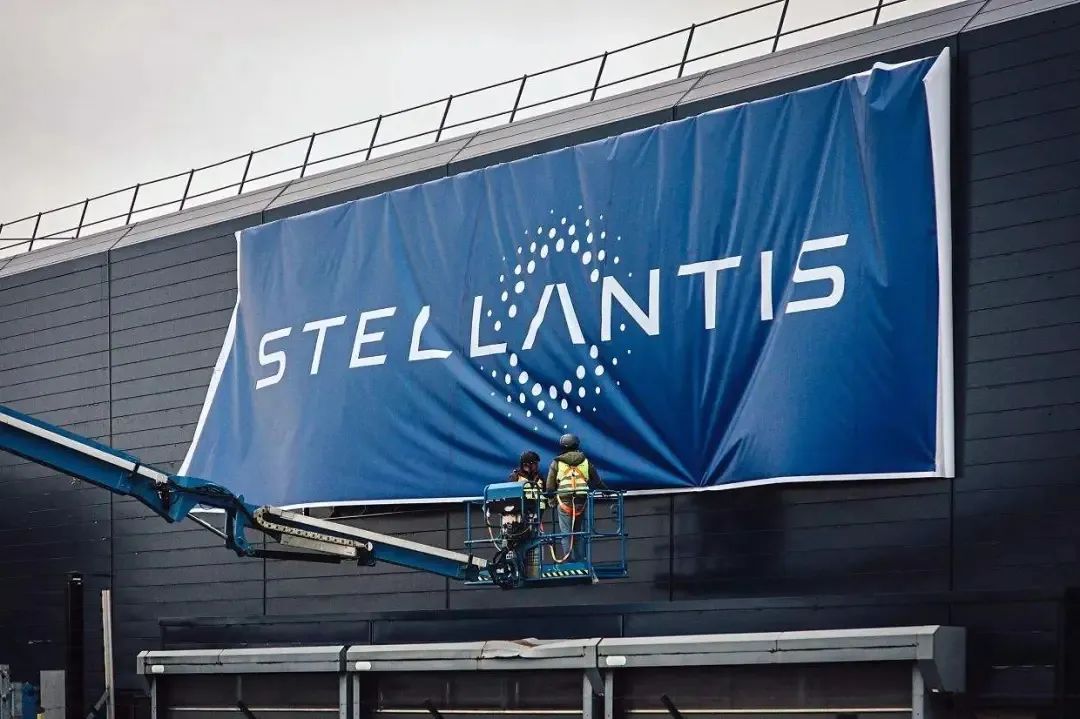
Just Auto data shows that due to European car sales being nearly one-fifth lower than pre-pandemic levels, over 30 factories of brands like Volkswagen, Stellantis, and Renault are struggling at or below the breakeven point.
Last year, Volkswagen was the world's second-largest automaker, but it has experienced a significant decline this year. In the first three quarters, revenue was 237.279 billion euros, a year-on-year increase of 0.9%, but net profit was 8.92 billion euros, a year-on-year decrease of 30.7%.
Specifically, in the third quarter, Volkswagen's global sales were 2.176 million units, a year-on-year decrease of 7.1%. Among them, sales of pure electric vehicles were 189,000 units, a year-on-year decrease of 9.8%. It is expected that new vehicle deliveries for the full year will be 9 million units, a decrease of 240,000 units from last year.
Chinese market sales account for about 35% of Volkswagen's total sales. Blume has visited China three times this year to promote the company's electrification transformation in China.
In fact, among multinational companies transitioning to electrification, Volkswagen is relatively faster, but it previously focused solely on the pure electric route, failing to keep up with the current market's huge demand for plug-in hybrid vehicles.
Insufficient sensitivity to electric vehicles is a common problem among these multinational automakers.
Four years ago, the Japanese newspaper Yomiuri Shimbun published a commentary stating that 'if Nissan fails to take a crucial step in its electrification transformation, it will continue to face even more difficult challenges in the future.' Four years later, this prophecy has come true.
In the first half of fiscal year 2024 (April-September), Nissan's net profit was 19.2 billion yen (about RMB 900 million), a year-on-year decline of 94%. Global new vehicle sales were 1.586 million units, a year-on-year decrease of nearly 4%, making it more difficult to achieve the production target of 3.65 million units for fiscal year 2024, which has already been revised downwards. The main reason is that Nissan is still relying on gasoline vehicles, with new models being introduced too slowly. In its largest market, North America, only one new model has been launched in the past two years, excluding facelifts. In the Chinese market, the Sylphy model still accounts for half of Nissan's sales.
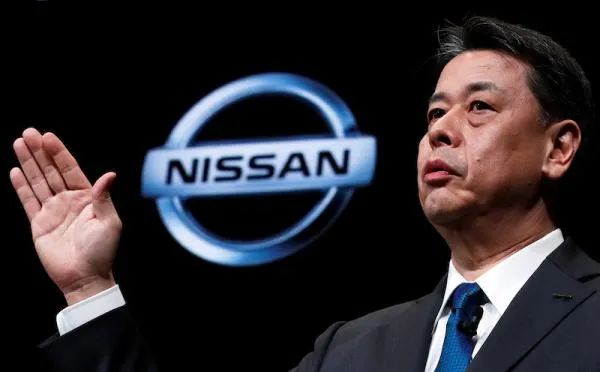
The second major obstacle is internal conflicts of interest.
On December 2, workers at nine Volkswagen Group factories went on strike for several hours, halting production lines. Strikes are detrimental to normal operations, with every two hours of downtime resulting in hundreds of unproduced vehicles.
Volkswagen Group employs 680,000 people, and labor unions play a significant role in the company's operations. Volkswagen's corporate structure gives workers a strong voice in key decisions, making it difficult for management to unilaterally push for cost cuts. Employee representatives occupy half of the seats on the company's supervisory board, and the state of Lower Saxony, where Volkswagen's headquarters is located, holds two additional seats.
Many people criticize Volkswagen Group for its bloated organization and complex structure. Although its operations and processes are standardized, it suffers from the inefficiencies common to large enterprises.

Blume, who also serves as Porsche's global CEO, must ensure fairness to Porsche and other brands while driving the overall transformation of Volkswagen Group. This is a heavy burden.
Nissan, which is now in crisis, also has irreconcilable internal cultural genes. There is an entrenched operational culture from the Ghosn era that has not been eradicated. Although Ghosn was dismissed in 2018, the management team has remained largely unchanged. Many executives still retain the Ghosn-era habit of 'waiting for instructions,' and some are unable to directly propose improvements to their superiors.
An internal survey of Nissan employees showed that over 50% lack trust in company management, and employee turnover has increased by 25% over the past two years. Corporate cultural turmoil and low morale not only affect employees' work efficiency but also weaken the company's innovative vitality and market competitiveness.

Tech Pioneers
Are the challenges faced by multinational automakers not also the dilemmas of traditional Chinese manufacturers?
In July this year, 63-year-old Chen Hong left SAIC Motor after a decade at the helm. Two years ago, SAIC Motor was still the most profitable listed automaker in China for several consecutive years, but its net profit in the third quarter of this year was only 280 million yuan, a year-on-year drop of 93.6%.
Chinese brands such as GAC Group and Chery Automobile are also struggling to transition to intelligent electrification under the leadership of '60-year-old men.' They also face the loss of their gasoline vehicle status and the threat of insufficient technological accumulation.
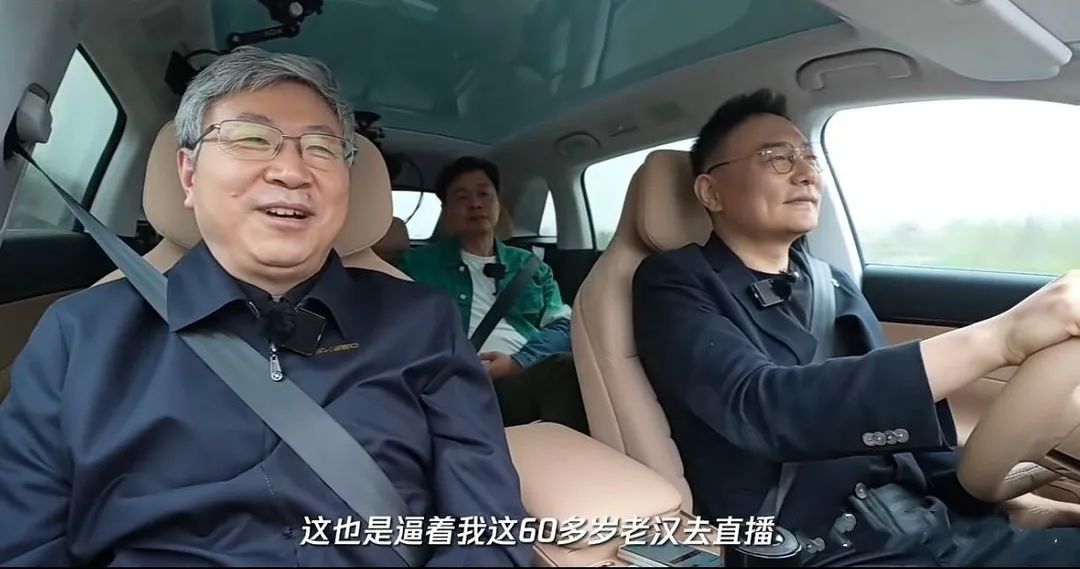
The phrase '60-year-old men' originated from a self-deprecating remark by Yin Tongyue, Chairman of Chery Automobile.
Since this year, Chinese automotive brands have begun to 'roll up their sleeves,' with various automaker leaders joining the live streaming ranks.
These scenes are touching. Li Bin, CEO of NIO, once said that this generation of automakers, including Zhu Huarong, Chairman of Changan Automobile, are more determined.
This is because traditional automakers are struggling on their transformation journey.
On the one hand, most new energy vehicle brands have volume but no profit, while gasoline vehicles' profitability is declining. Intense price wars have further compressed profit margins, leading to double declines in revenue and profit for companies like GAC Group and SAIC Motor, intensifying industry competition.
On the other hand, the current trend of intelligence is not a strength of traditional automakers. Currently, the efficiency of in-house software development is inferior to collaboration with external suppliers. As a result, tech giant Huawei has become a hotly sought-after partner, wielding significant influence in automaker collaborations. Those automakers who once rejected Huawei's 'olive branch' have had to turn back and join forces with it.
In the current automotive industry, technology has taken a higher position than manufacturing.
The person who changed the wind direction was Tesla CEO Elon Musk. 'When we truly got involved, we realized Tesla's disruption and strength in the traditional automotive industry,' said a senior executive of a traditional automaker.
Musk has always positioned Tesla as a tech company. Initially, Tesla introduced centralized architecture and high-performance chips in automotive development, later producing autonomous driving systems and embodied robots.
Musk is not only a creative genius but also a skilled manager. Tesla's brand influence and sales model have provided a new model for the automotive industry, guiding the emerging Chinese auto manufacturers. For example, "Xiaopeng Motors, NIO, and Li Auto" follow Tesla's footsteps and insist on independently researching and developing core technologies. Compared to traditional automakers, their leaders are younger, have shifted from the internet industry, place greater emphasis on technology, and are more daring to seek change.
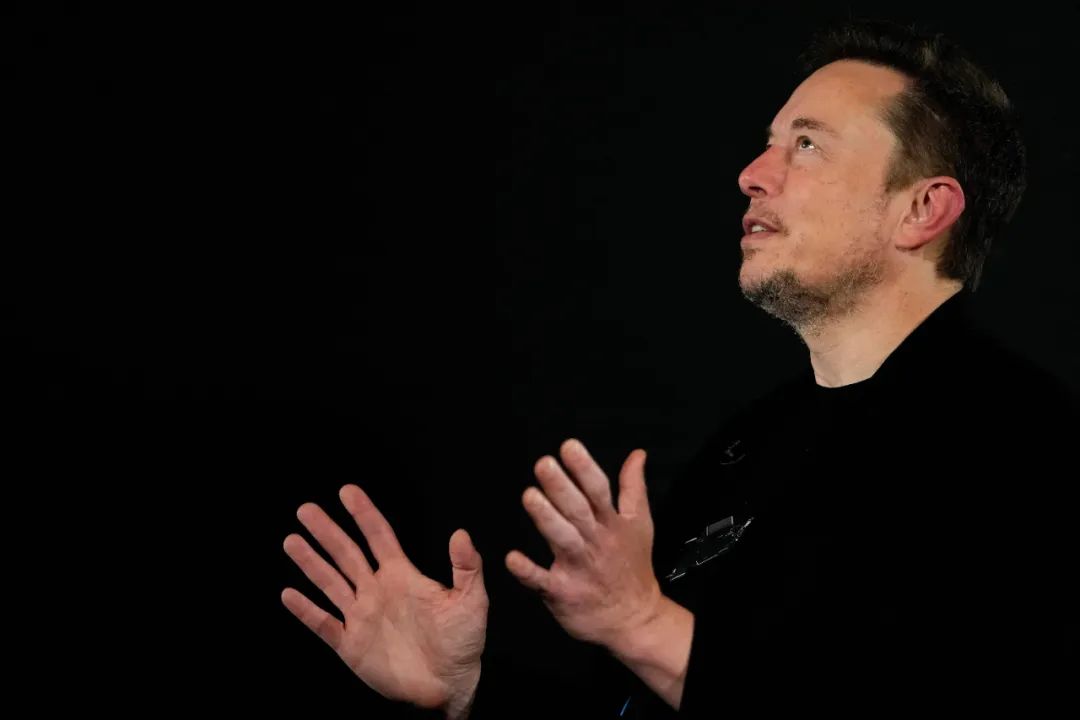
Liu Yongxuan, a senior editor of Tsinghua Management Review, once said that Musk is not predicting the future but creating it. In promoting the development of electric vehicles, he has legitimized the market, race tracks, technological routes, and standards, turning them into a consensus. Eventually, those who initially believed Musk was wrong were forced to join the game.
"First, the foundation of the Tesla model is Toyota's lean thinking, but it benchmarks against Ford. Second, Tesla builds an additional layer on top of that foundation, which is the spirit of Silicon Valley," said Hao Yazhou, a management consultant and former executive editor of China Europe Business Review, comparing Toyota and Tesla.
Musk has bluntly stated that traditional automakers are facing their "Kodak moment" and will be eliminated like film if they do not transform.
In business history, technological geniuses have always brought disruptive changes, opening up innovative pathways for industries. Just as Steven Sasson invented the digital camera, leading to the demise of Kodak film, and Steve Jobs created Apple, leading to the collapse of the Nokia empire, the automotive industry is no exception. From Herbert Diess to Akio Toyoda to Carlos Tavares, tech-savvy individuals have become the gravediggers of these business legends.
Who will be the next CEO to bow out gracefully?

